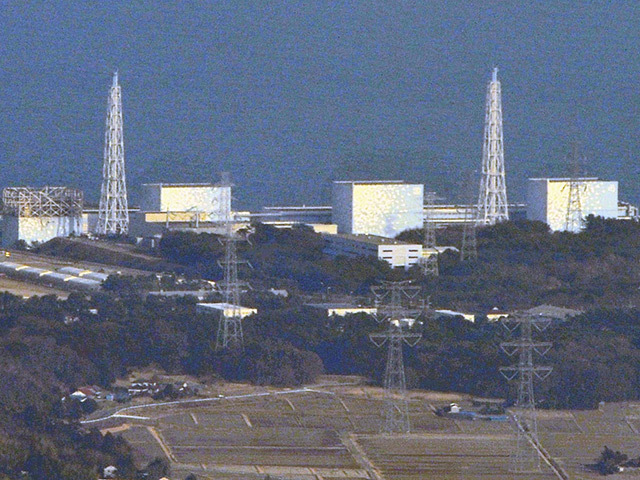
The operator of the stricken Fukushima nuclear plant is not making enough progress in clearing up radioactive water from the site, an leading adviser has warned.
Dale Klein, who chairs Tokyo Electric Power’s nuclear reform monitoring committee, said the company’s failure to dispose contaminated water from tanks at the site had left Tepco distracted from other important projects.
Klein’s warning comes on the third anniversary of the disaster at the Japanese nuclear plant, which suffered a meltdown following damage caused by the devastating tsunami which hit Japan in 2011.
Tepco, which has been forced to store thousands of metric tons of radioactive water, says decommissioning the plant could take four decades and cost as much as 11 trillion yen (£63billion).
Dismantling the plant will involve the removal of molten fuel from three reactors – a process never previously attempted, Klein warned.
“They are making progress, though not yet enough, on the long-term challenge posed by groundwater,” he said.
“There is a tendency to divert attention – and resources – from addressing and solving the main challenge posed at Fukushima: How do we keep the molten fuel and the spent fuel cooled and how do we safely remove molten fuel from damaged containment vessels?”
Klein, who has headed the monitoring body since September 2012, has been critical in the past of safety standards at the Japanese utilities giant.
While Tepco has had treatment systems in place for removing the contaminant cesium since shortly after the March 2011 disaster, and is testing a filter for the radioactive element strontium, it has no means of removing the tritium.
“It is safer to release that water in a controlled manner, proper dilution, than it is to keep it in tanks,” Klein said.
A Tepco spokeswoman said the company was working with the government on a plan to deal with contaminated water at the site, but could not release the water into the ocean without government approval.
Recommended for you
